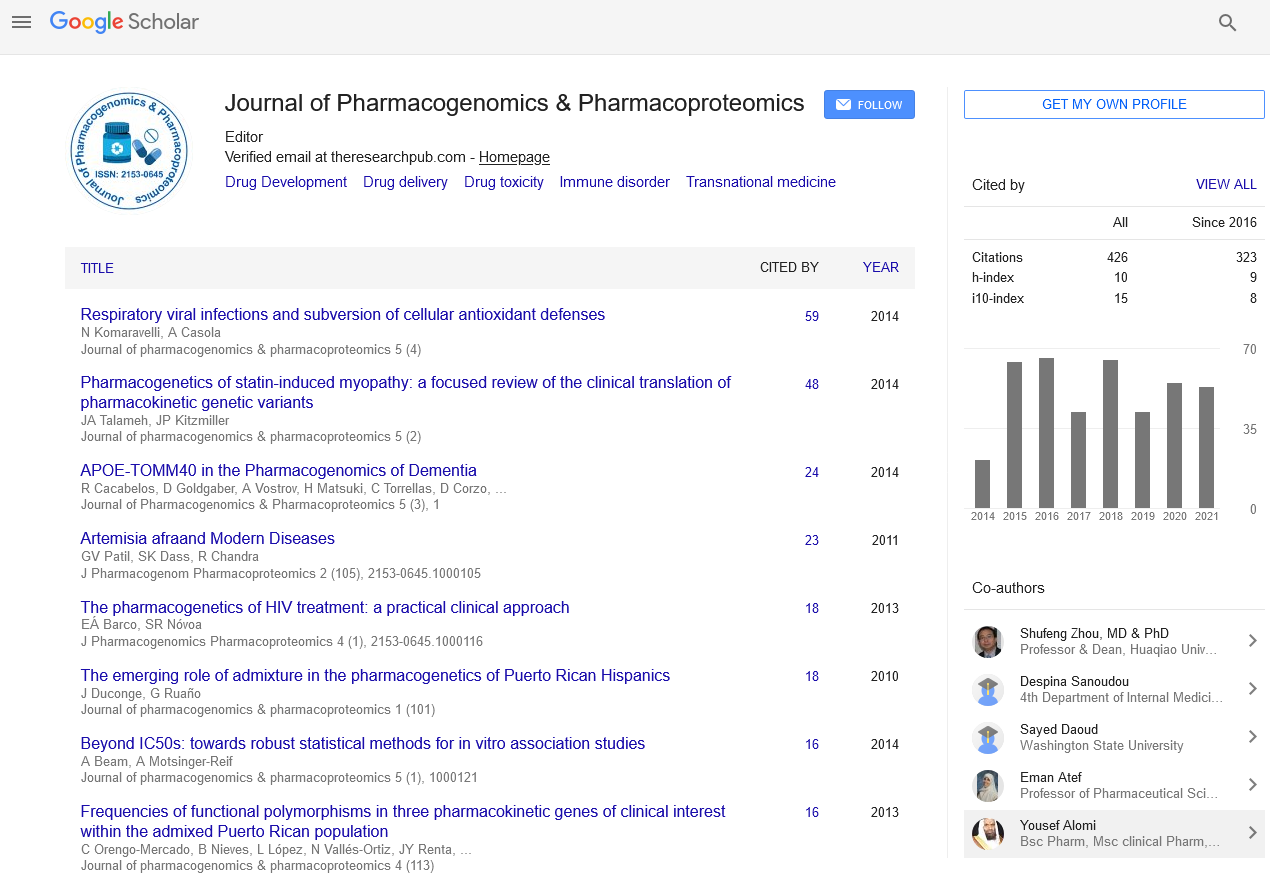Indexed In
- Open J Gate
- Genamics JournalSeek
- Academic Keys
- JournalTOCs
- ResearchBible
- Electronic Journals Library
- RefSeek
- Hamdard University
- EBSCO A-Z
- OCLC- WorldCat
- Proquest Summons
- SWB online catalog
- Virtual Library of Biology (vifabio)
- Publons
- MIAR
- Euro Pub
- Google Scholar
Useful Links
Share This Page
Journal Flyer

Open Access Journals
- Agri and Aquaculture
- Biochemistry
- Bioinformatics & Systems Biology
- Business & Management
- Chemistry
- Clinical Sciences
- Engineering
- Food & Nutrition
- General Science
- Genetics & Molecular Biology
- Immunology & Microbiology
- Medical Sciences
- Neuroscience & Psychology
- Nursing & Health Care
- Pharmaceutical Sciences
Abstract
Frequencies of Functional Polymorphisms in Three Pharmacokinetic Genes of Clinical Interest within the Admixed Puerto Rican Population
Carmelo Orengo-Mercado, Bianca Nieves, Lizbeth López, Nabila Vallés-Ortiz, Jessicca Y. Renta, Pedro J. Santiago-Borrero, Carmen L. Cadilla and Jorge Duconge
Objective: This cross-sectional study was aimed at determining the allele frequencies for the CYP2C19*2, CYP2C19*3, CYP2D6*10 and PON1 (rs662) polymorphisms in the Puerto Rican population. The CYP2C19, CYP2D6 and PON1 genes are known to be associated with functional changes in drug metabolism and activation. Individuals carrying the aforementioned polymorphisms are at a higher risk of suffering from drug-induced adverse events and/ or unresponsiveness from a variety of drugs that includes antidepressants, atypical antipsychotics and antiplatelet compounds. Information on the frequency of these polymorphisms is more commonly found on homogeneous populations, but is scarce in highly heterogeneous populations like Hispanics, as in the case of Puerto Ricans.
Method: Genotyping was carried out in 100 genomic DNA samples from dried blood spots supplied by the Puerto Rican Newborn Screening program using Taqman® Genotyping Assays. Results: The Minor Allele Frequencies (MAF) obtained were 9% for CYP2C19*2 and CYP2D6*10, 50% for PON1 (rs662), while the CYP2C19*3 variant was not detected in our study. Furthermore, Hardy Weinberg equilibrium analysis was assessed as well as a comparison between Puerto Rico and other reference populations using a Z-test for proportions. Conclusion: The observed allele and genotype frequencies on these relevant pharmacogenes in Puerto Ricans were more closely related to those early reported in two other reference populations of Americans (Mexicans and Colombians).


